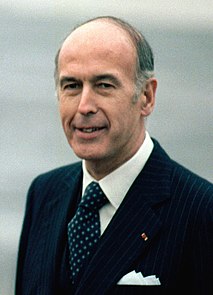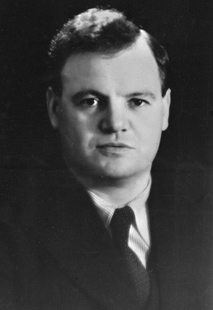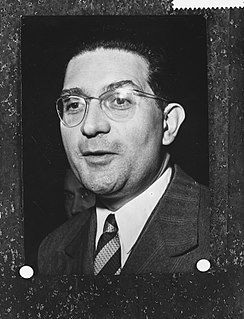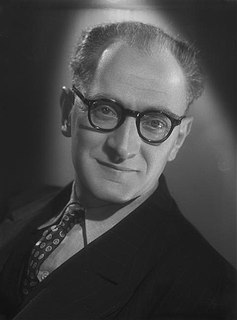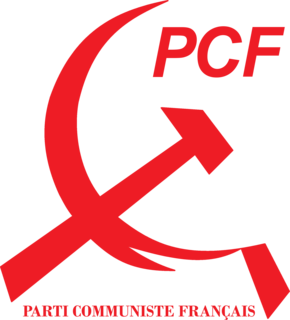| |||||||||||||||||||||||||||||||||||||||||||||||||||||||||||||||||||||||||||||
All 595 seats to the French National Assembly 298 seats were needed for a majority | |||||||||||||||||||||||||||||||||||||||||||||||||||||||||||||||||||||||||||||
| |||||||||||||||||||||||||||||||||||||||||||||||||||||||||||||||||||||||||||||
| |||||||||||||||||||||||||||||||||||||||||||||||||||||||||||||||||||||||||||||
| This article is part of a series on the |
| Politics of France |
|---|
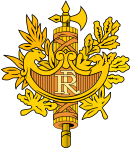 |
Related topics |
| France portal |
French legislative elections to elect the third National Assembly of the Fourth Republic took place on 2 January 1956 using party-list proportional representation. [1] The elections had been scheduled for June 1956; however, they were brought forward by Edgar Faure using a constitutional sanction. [2]

The National Assembly is the lower house of the bicameral Parliament of France under the Fifth Republic, the upper house being the Senate. The National Assembly's members are known as députés.

The French Fourth Republic was the republican government of France between 1946 and 1958, governed by the fourth republican constitution. It was in many ways a revival of the Third Republic that was in place from 1870 during the Franco-Prussian War to 1940 during World War II, and suffered many of the same problems. France adopted the constitution of the Fourth Republic on 13 October 1946.

Party-list proportional representation systems are a family of voting systems emphasizing proportional representation (PR) in elections in which multiple candidates are elected through allocations to an electoral list. They can also be used as part of mixed additional member systems.
The previous legislative elections in 1951 had been won by the Third Force, a coalition of center-left and center-right parties, but it was divided about denominational schools question and, when faced with the colonial problem, the governments had gradually moved towards the right. A part of the Rally of the French People (RPF), the Gaullist party, joined the majority in opposing the leadership of Charles de Gaulle, who then retired.

The Rally of the French People was a French political party, led by Charles de Gaulle.

Charles André Joseph Marie de Gaulle was a French army officer and statesman who led the French Resistance against Nazi Germany in World War II and chaired the Provisional Government of the French Republic from 1944 to 1946 in order to establish democracy in France. In 1958, he came out of retirement when appointed President of the Council of Ministers by President René Coty. He was asked to rewrite the Constitution of France and founded the Fifth Republic after approval by referendum. He was elected President of France later that year, a position he was reelected to in 1965 and held until his resignation in 1969. He was the dominant figure of France during the Cold War era, and his memory continues to influence French politics.
The defeat in the Battle of Dien Bien Phu in May 1954 caused a political crisis. [2] The Radical Pierre Mendès-France became leader of the cabinet and ended the First Indochina War. He also began the process of independence for Morocco and Tunisia, but from November 1954 on, France was confronted by the Algerian War. In February 1955, Mendès-France was replaced, at the head of the cabinet, by his rival in the Radical Party, Edgar Faure. This one led a more repressive policy in Algeria.

The Battle of Dien Bien Phu was the climactic confrontation of the First Indochina War between the French Union's French Far East Expeditionary Corps and Viet Minh communist revolutionaries. It was, from the French view before the event, a set piece battle to draw out the Vietnamese and destroy them with superior firepower. The battle occurred between March and May 1954 and culminated in a comprehensive French defeat that influenced negotiations underway at Geneva among several nations over the future of Indochina.

The First Indochina War began in French Indochina on December 19, 1946, and lasted until July 20, 1954. Fighting between French forces and their Việt Minh opponents in the south dated from September 1945. The conflict pitted a range of forces, including the French Union's French Far East Expeditionary Corps, led by France and supported by Bảo Đại's Vietnamese National Army against the Việt Minh, led by Ho Chi Minh and the People's Army of Vietnam led by Võ Nguyên Giáp. Most of the fighting took place in Tonkin in northern Vietnam, although the conflict engulfed the entire country and also extended into the neighboring French Indochina protectorates of Laos and Cambodia.

Morocco, officially the Kingdom of Morocco, is a country located in the Maghreb region of North West Africa with an area of 710,850 km2 (274,460 sq mi). Its capital is Rabat, the largest city Casablanca. It overlooks the Mediterranean Sea to the north and the Atlantic Ocean to the west. Morocco claims the areas of Ceuta, Melilla and Peñón de Vélez de la Gomera, all of them under Spanish jurisdiction.
The far-right, led by Pierre Poujade, re-appeared at about the same time. He was a critic of "fiscalism", and leader of a shopkeepers and craftsmen's movement. Many voters seemed tired of the political system's numerous ministerial crises, and he had much support in the rural areas, which were in decline.
Pierre Poujade was a French populist politician after whom the Poujadist movement was named.
Fiscalism is a term sometimes used to refer the economic theory that the government should rely on fiscal policy as the main instrument of macroeconomic policy. Fiscalism in this sense is contrasted with monetarism, which is associated with reliance on monetary policy. Fiscalists reject monetarism in a non-convertible floating rate system as inefficient if not also ineffective
The anticipated legislative elections took place when Faure was defeated by the National Assembly. Even though the French Communist Party re-emerged as the country's most popular party (for the last time in its history), it did not join the government. A coalition was formed behind Mendès-France and advocated a peaceful resolution of the Algerian conflict. This Republican Front was composed of the French Section of the Workers' International (SFIO, socialist party) of Guy Mollet, the Radical Party of Pierre Mendès-France, the Democratic and Socialist Union of the Resistance of François Mitterrand and the National Centre of Social Republicans of Jacques Chaban-Delmas. Faure was excluded from the Radical Party – in response he transformed the Rally of the Republican Lefts (which had been abandoned by those groups which had now joined the Republican Front) into a party that he led, and he campaigned with the center-right parties. The French Communist Party remained the largest party and the Republican Front obtained a relative majority in order to end the Algerian War.
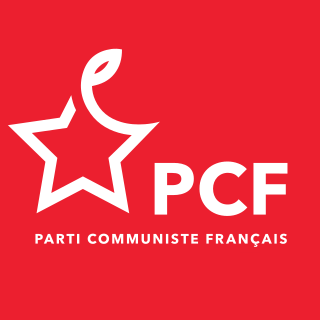
The French Communist Party is a communist party in France.
The Republican Front was a French center-left coalition which won the 1956 legislative election. In the context of the Algerian War, behind Pierre Mendès-France, it gathered the French Section of the Workers' International (SFIO), the Radical Party, the Democratic and Socialist Union of the Resistance and the National Centre of Social Republicans which came from a split of the Gaullist movement.
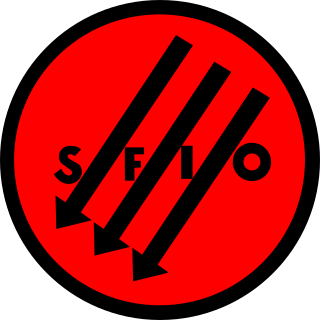
The French Section of the Workers' International was a French socialist party founded in 1905 and replaced in 1969 by the current Socialist Party (PS). It was created during the 1905 Globe Congress in Paris as a merger between the French Socialist Party and the Socialist Party of France in order to create the French section of the Second International, designated as the party of the workers' movement.
The Poujadists won representation in Parliament, and were considered by the press to hold the balance of power. Media reception was mixed, with the result welcomed by communist supporters and condemned by papers such as The Times and the French Le Figaro . [3]

The Times is a British daily national newspaper based in London. It began in 1785 under the title The Daily Universal Register, adopting its current name on 1 January 1788. The Times and its sister paper The Sunday Times are published by Times Newspapers, since 1981 a subsidiary of News UK, itself wholly owned by News Corp. The Times and The Sunday Times do not share editorial staff, were founded independently, and have only had common ownership since 1967.

Le Figaro is a French daily morning newspaper founded in 1826 and published in Paris. Le Figaro is the oldest national daily in France and is one of the three French newspapers of record, along with Le Monde and Libération.
The coalition cabinet was led by the Socialist leader Guy Mollet. [2] At the beginning he was also supported by the Communists, but pressure from the pieds-noir in Algeria incited him into leading a very repressive policy against the Algerian nationalists. This policy was criticized by Vice-Prime Minister Mendès-France and other members of the cabinet, who resigned, thus splitting the Republican Front. Mollet and his successors floundered in the conflict until May 1958.







